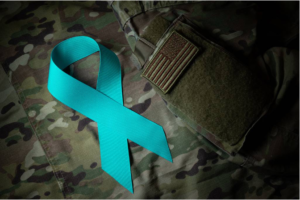By Kaitlyn Grant

Sexual assaults have and continue to be a problem within the military today. [1] In fact, twenty thousand service members experience sexual assault every year.[2] Of the 20,000 service members, less than 8,000 report those sexual assaults. [3] Only a few of these sexual assaults result in any kind of action taken within the military justice system. [4] One of the reasons that there fails to be justice for these victims is that military commanders are the ones who decide whether to investigate and pursue legal action in these cases. [5]
Congress has been attempting to find a remedy for this problem for many years.[6] In fact, every year since 2013, New York Senator Kirsten Gillibrand has introduced legislation that would allow independent prosecutors to prosecute major military crimes. [7] The Pentagon has opposed this Congressional effort because they argue that it would “undermine institutional leadership.” [8]Additionally, in 2019 Vice Adm. John G. Hannink, Judge Advocate General of the Navy testified in opposition of removing authority from commanders for these crimes stating that it “would have a detrimental impact on the ability of those commanders – and other commanders – to ensure good order and discipline.” [9]
Although there has been opposition to action being taken to improve prevention and prosecution of these crimes, Secretary of Defense Lloyd J. Austin III accepted all recommendations of an independent review commission in 2021.[10] Among these recommendations was to change who is charged with prosecuting those who are suspected of committing sexual assaults.[11] Based on this recommendation, Austin has instructed the department to work with Congress to make changes to the Uniform Code of Military Justice [UCMJ].[12] Specifically, Austin has instructed them to change who has the responsibility on how to move forward with domestic violence offenses, child abuse, and retaliation. [13]
Making changes to the UCMJ (federal law), requires approval by Congress.[14] However, Congressional approval is not required for non-judicial punishment within the military.[15] Each service has been directed to “standardize, across the force, non-judicial punishments and to establish a separation process for service members against whom are substantiated claims of sexual harassment.”[16]Additionally, Austin has directed his Deputy Secretary of Defense Kathleen H. Hicks to help design a plan for implementing these recommendations.[17] The implementation of this plan went into effect once Austin approved.[18]
While these recommendations went into effect after July 2, 2021, sexual assault remains a problem within the military.[19] Kirsten Gillibrand continues to advocate for the removal of the prosecution of these crimes from the chain of command.[20] While some problems were resolved by the adoption of these recommendations, Commanders still maintain authority to “conduct the trials, choose jury members, grant immunity and approve witnesses.”[21] These are vital parts of investigations and prosecutions of these cases, and are ultimately technically necessary to ensure there are fair trials and justice is upheld in the military system.[22] This level of control by commanders continues to hinder the prosecution of these cases by an outside prosecutor. Gillibrand seeks to secure the Ending Forced Arbitration of Sexual Assault and Sexual Harassment Act on February 10, 2023, in an effort to finally resolve these problems.[23]
Will this effort pass and help to curb the problem of sexual assault and the hinderance of sexual assault prosecution in the military? Or will this be another effort that fails to pass because of the resistance to take authority away from the chain of command and ultimately fail to uphold justice for victims of these crimes?
[1] Meghann Myers, The Military’s Sexual Assault Problem is Only Getting Worse, Mil. Times (Sept. 1, 2022), https://www.militarytimes.com/news/your-military/2022/09/01/the-militarys-sexual-assault-problem-is-only-getting-worse/.
[2] Todd Lopez, Sexual Assaults Will No Longer Be Prosecuted by Commanders, U.S. Dep’t of Def. (July 2, 2021), https://www.defense.gov/News/News-Stories/Article/Article/2681848/sexual-assaults-will-no-longer-be-prosecuted-by-commanders/.
[3] Id.
[4] Id.
[5] Melinda Wenner Moyer, ‘A Poison in the System’: The Epidemic of Military Sexual Assault, N.Y. Times (Oct. 11, 2021), https://www.nytimes.com/2021/08/03/magazine/military-sexual-assault.html.
[6] Id.
[7] Id.
[8] Id.
[9] Id.
[10] Lopez, supra note 2.
[11] Id.
[12] Id.
[13] Id.
[14] Id.
[15] Id.
[16] Id.
[17] Id.
[18] Id.
[19] Id.
[20] Claudia Grisales, House Passes Defense Bill That Includes Proposal To Combat Sexual Assault In Military, NPR (Dec. 8, 2022), https://www.npr.org/2022/12/08/1141325099/defense-bill-includes-years-long-proposal-to-combat-sexual-assault-in-military .
[21] Jennifer Steinhauer, Lawmakers Reach Deal to Overhaul How Military Handles Sexual Assault Cases, NY Times (Dec. 7, 2021), https://www.nytimes.com/2021/12/07/us/politics/military-sexual-assault-congress.html .
[22] Id.
[23] Grisales, Supra note 20.

